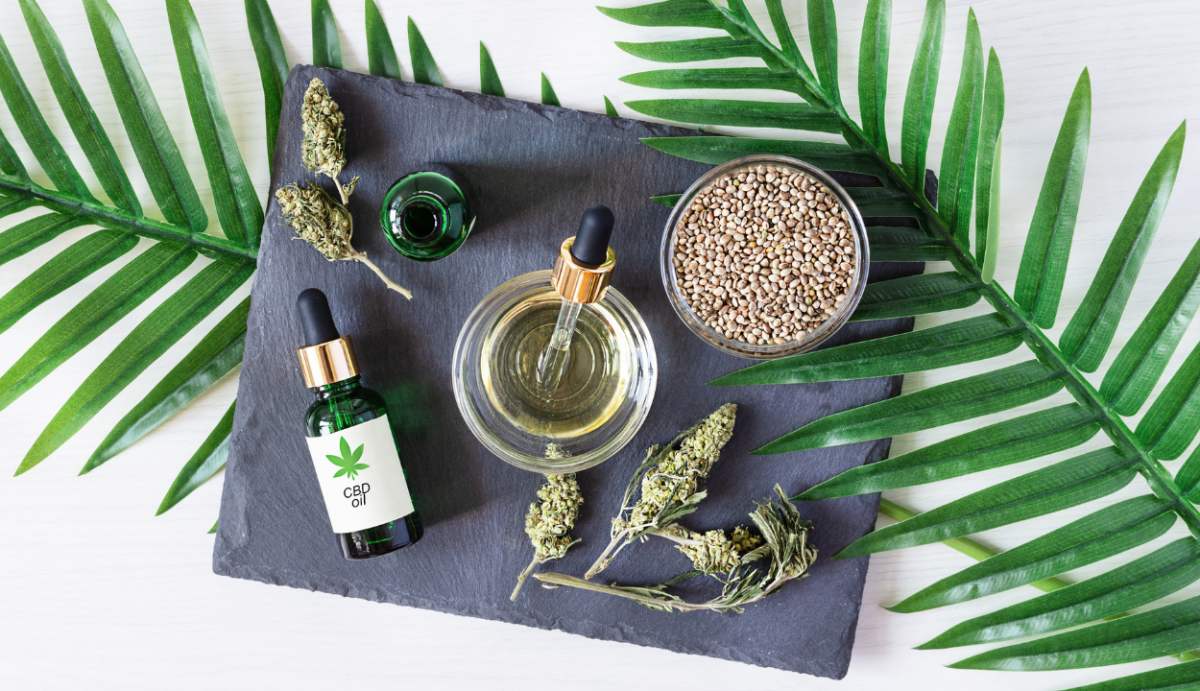Your Cart is Empty
FREE SHIPPING ON ALL ORDERS $75+
CBD and THC are the two most prominent and well-researched cannabinoids found in the cannabis plant, but they are starkly different. CBD, of course, provides a much milder experience than psychoactive THC, so users are sometimes shocked to find out that their CBD products also contain small amounts of THC.
But how much THC is in CBD oil, and does it really make a difference?
The simple answer—There’s generally less than 0.3% Delta-9-THC in CBD products. Ideally, we’d like to say that this is the only answer, but that’s not always the case.
All CBD products are made differently, and it’s possible that lower-quality products may contain more than the federally legal amount of THC, which can cause serious problems. We’ll address these implications (and the reason that CBD oil usually contains trace amounts of THC) below:
Table of Contents
The THC Content in CBD Products
Why is There THC in CBD Oil?
Can You Get CBD Without THC?
Will the THC in CBD Products Make You Fail a Drug Test?
How Long Will CBD (and THC) Stay in your System After Dosing?
Where to Buy Legal Delta-8-THC Products
As we mentioned, there’s no set amount of THC found in CBD formulas. There is, however, a federally defined legal limit for products that are considered “hemp products,” the kind of CBD product that is legal across the country.

The Hemp Farming Act of 2018, the bill that legalized hemp and CBD, defines hemp as “the plant Cannabis sativa L. and any part of that plant...with a delta-9 tetrahydrocannabinol concentration of not more than 0.3 percent on a dry weight basis.”
In other words, in order for CBD to be considered a federally legal product, it must contain less than 0.3% Delta-9-THC (although Delta-8-THC is a different story). But that doesn’t mean that all CBD products fit this description.
In some areas, specifically those where cannabis is legal for either medical or recreational use, it’s legal for CBD products to contain higher concentrations of THC.
This type of CBD will be sold as a cannabis product, not a hemp product, at state-licensed dispensaries. In almost all cases, the THC content of a CBD product is required to be clearly represented on the label. You can also check a product’s third-party test results to get a more accurate idea of it’s THC content.
Per the federal definition above, THC is naturally occurring in hemp material, and trace amounts of THC naturally make their way into the CBD oil during extraction. CBD oil that contains this naturally occurring THC is often called “full-spectrum CBD.”
Full spectrum CBD is sometimes linked to increased benefits compared to CBD that contains no THC at all. This is due to something called the “entourage effect,” a phenomenon in which cannabinoids are thought to have a synergistic reaction to each other that boosts their effects.
Of course, THC is not the only component of full-spectrum CBD. In general, full-spectrum products should contain a varied range of major and minor cannabinoids, including CBD, THC, CBN, CBG, or CBC.
Additionally, full-spectrum products may contain a variety of hemp-derived terpenes, or aromatic compounds thought to have their own range of therapeutic properties.
THC is only one piece of the full-spectrum puzzle, which is why the trace amounts found in legal CBD products are generally enough to reap it’s synergistic benefits.
If you were hoping the answer to “how much THC is in CBD oil” was “zero,” then you may be interested in CBD isolate, a CBD product made without THC.

This type of CBD contains no THC, not even in trace amounts. To make CBD isolate, an additional refinement step is used after extraction to remove all naturally occurring THC (as well as other cannabinoids and terpenes) from the final product.
This type of CBD is highly potent and is available in a variety of different dosing methods, but lacks the synergistic benefits we described above.
Now, on to the real reason why most readers are here—will the trace amounts of THC in full-spectrum CBD cause you to fail a drug test?
It’s theoretically possible, but it’s not likely.
The amount of THC in legal hemp products is small. So small that it’s very unlikely to trigger a positive drug test result in a standard urine test, which usually looks specifically for THC metabolites.
In fact, estimates suggest you may need to take between 1,000 and 2,000 milligrams of full-spectrum CBD per day for the trace amounts of THC to actually trigger a positive drug test result.
In other words, most people can safely reap the therapeutic benefits of full-spectrum CBD, as long as they use third-party test results to verify the product’s scant THC content.
If you’re surprised to find out that the CBD you’ve been taking contains THC, don’t fret yet. There may be no need to panic.
As we mentioned, CBD is already very unlikely to trigger a positive test result, but it also doesn’t stick around in the body for very long. Usually, CBD is undetectable in urine after only 24 hours. The amount of time cannabinoids stay in your system can change depending on how much you take and how often you dose. You can read “How Long Does CBD Stay in Your System?” to learn more.
Comments will be approved before showing up.



